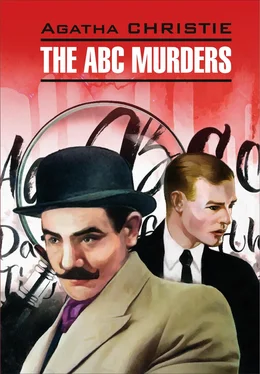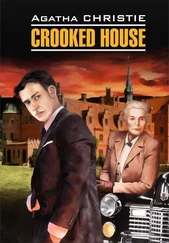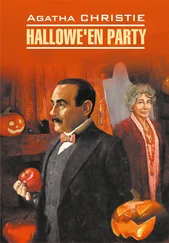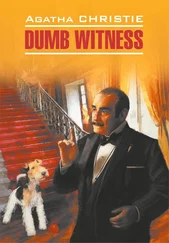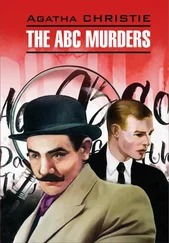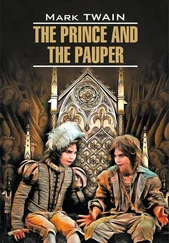‘That’s a point,’ said Dr Thompson. ‘I remember a case where a woman’s husband was condemned to death. She started killing the members of the jury one by one. Quite a time before the crimes were connected up. They seemed entirely haphazard. But as M. Poirot says, there isn’t such a thing as a murderer who commits crimes at random . Either he removes people who stand (however insignificantly) in his path, or else he kills by conviction . He removes clergymen, or policemen, or prostitutes because he firmly believes that they should be removed. That doesn’t apply here either as far as I can see. Mrs Ascher and Betty Barnard cannot be linked as members of the same class. Of course, it’s possible that there is a sex complex. Both victims have been women. We can tell better, of course, after the next crime —’
‘For God’s sake, Thompson, don’t speak so glibly of the next crime,’ said Sir Lionel irritably. ‘We’re going to do all we can to prevent another crime.’
Dr Thompson held his peace [162] to hold one’s peace – молчать
and blew his nose with some violence.
‘Have it your own way,’ the noise seemed to say. ‘If you won’t face facts —’
The Assistant Commissioner turned to Poirot.
‘I see what you’re driving at, but I’m not quite clear yet.’
‘I ask myself,’ said Poirot, ‘what passes exactly in the mind of the murderer? He kills, it would seem from his letters, pour le sport [163] pour le sport (фр.) – ради спортивного интереса
—to amuse himself. Can that really be true? And even if it is true, on what principle does he select his victims apart from the merely alphabetical one? If he kills merely to amuse himself he would not advertise the fact, since, otherwise, he could kill with impunity. But no, he seeks, as we all agree, to make the splash in the public eye—to assert his personality. In what way has his personality been suppressed that one can connect with the two victims he has so far selected? A final suggestion: Is his motive direct personal hatred of me, of Hercule Poirot? Does he challenge me in public because I have (unknown to myself) vanquished him somewhere in the course of my career? Or is his animosity impersonal—directed against a foreigner? And if so, what again has led to that? What injury has he suffered at a foreigner’s hand?’
‘All very suggestive questions,’ said Dr Thompson.
Inspector Crome cleared his throat.
‘Oh, yes? A little unanswerable at present, perhaps.’
‘Nevertheless, my friend,’ said Poirot, looking straight at him, ‘it is there, in those questions, that the solution lies . If we knew the exact reason—fantastic, perhaps, to us—but logical to him—of why our madman commits these crimes, we should know, perhaps, who the next victim is likely to be.’
Crome shook his head.
‘He selects them haphazard—that’s my opinion.’
‘The magnanimous murderer,’ said Poirot.
‘What’s that you say?’
‘I said—the magnanimous murderer! Franz Ascher would have been arrested for the murder of his wife—Donald Fraser might have been arrested for the murder of Betty Barnard—if it had not been for the warning letters of А В C. Is he, then, so soft-hearted that he cannot bear others to suffer for something they did not do?’
‘I’ve known stranger things happen,’ said Dr Thompson. ‘I’ve known men who’ve killed half a dozen victims all broken up because one of their victims didn’t die instantaneously and suffered pain. All the same, I don’t think that that is our fellow’s reason. He wants the credit of these crimes for his own honour and glory. That’s the explanation that fits best.’
‘We’ve come to no decision about the publicity business,’ said the Assistant Commissioner.
‘If I may make a suggestion, sir,’ said Crome. ‘Why not wait till the receipt of the next letter? Make it public then—special editions, etc. It will make a bit of a panic in the particular town named, but it will put everyone whose name begins with C on their guard, and it’ll put A B C on his mettle [164] to put on one’s guard – предостерегать; to put on one’s mettle – испытать мужество
. He’ll be determined to succeed. And that’s when we’ll get him.’
How little we knew what the future held.
Chapter 14
The Third Letter
I well remember the arrival of A В C’s third letter.
I may say that all precautions had been taken so that when ABC resumed his campaign there should be no unnecessary delays. A young sergeant from Scotland Yard was attached to the house and if Poirot and I were out it was his duty to open anything that came so as to be able to communicate with headquarters without loss of time.
As the days succeeded each other we had all grown more and more on edge. Inspector Crome’s aloof and superior manner grew more and more aloof and superior as one by one his more hopeful clues petered out. The vague descriptions of men said to have been seen with Betty Barnard proved useless. Various cars noticed in the vicinity of Bexhill and Cooden were either accounted for or could not be traced. The investigation of purchases of А В C railway guides caused inconvenience and trouble to heaps of innocent people.
As for ourselves, each time the postman’s familiar rat-tat sounded on the door, our hearts beat faster with apprehension. At least that was true for me, and I cannot but believe that Poirot experienced the same sensation.
He was, I knew, deeply unhappy over the case. He refused to leave London, preferring to be on the spot in case of emergency. In those hot dog days even his moustaches drooped—neglected for once by their owner.
It was on a Friday that A В C’s third letter came. The evening post arrived about ten o’clock.
When we heard the familiar step and the brisk rat-tat, I rose and went along to the box. There were four or five letters, I remember. The last one I looked at was addressed in printed characters.
‘Poirot,’ I cried… My voice died away.
‘It has come? Open it, Hastings. Quickly. Every moment may be needed. We must make our plans.’
I tore open the letter (Poirot for once did not reproach me with untidiness) and extracted the printed sheet.
‘Read it,’ said Poirot.
I read aloud:
Poor Mr Poirot,—Not so good at these little criminal matters as you thought yourself, are you? Rather past your prime [165] (to be) past one’s prime – (быть) не первой молодости
, perhaps? Let us see if you can do any better this time.This time it’s an easy one. Churston on the 30th. Do try and do something about it! It’s a bit dull having it all my own way, you know!
Good hunting. Ever yours, A B C.
‘Churston,’ I said, jumping to our own copy of an А В C. ‘Let’s see where it is.’
‘Hastings,’ Poirot’s voice came sharply and interrupted me. ‘When was that letter written? Is there a date on it?’
I glanced at the letter in my hand.
‘Written on the 27th,’ I announced.
‘Did I hear you aright, Hastings? Did he give the date of the murder as the 30th ?’
‘That’s right. Let me see, that’s —’
‘Bon Dieu [166] Bon Dieu (фр.) – Боже милостивый
, Hastings—do you not realise? Today is the 30th.’
His eloquent hand pointed to the calendar on the wall. I caught up the daily paper to confirm it.
‘But why—how —’ I stammered.
Poirot caught up the torn envelope from the floor. Something unusual about the address had registered itself vaguely in my brain, but I had been too anxious to get at the contents of the letter to pay more than fleeting attention to it.
Читать дальше
Конец ознакомительного отрывка
Купить книгу
